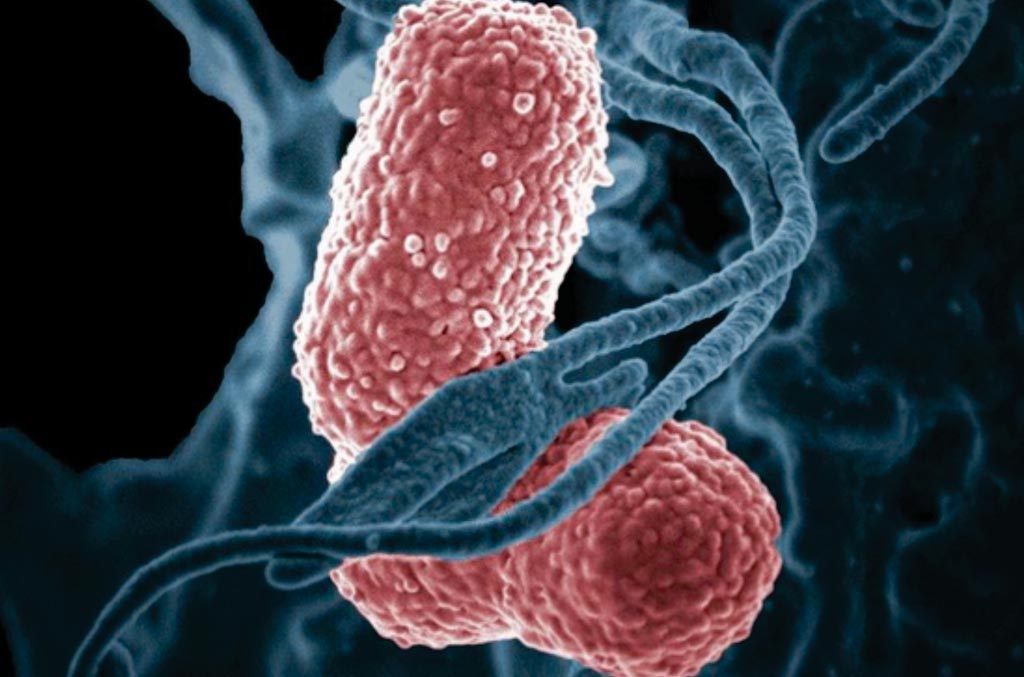Biomarker Discovered for Hypervirulent Pathogen
By LabMedica International staff writers
Posted on 18 Jul 2018
There is no accurate method for distinguishing between the hypervirulent strain from the classical strain of Klebsiella pneumoniae (cKp), which is most often seen in the Western hemisphere, and is less virulent and usually causes infections in hospital settings.Posted on 18 Jul 2018
Several biomarkers have been discovered that can accurately identify hypervirulent K. pneumoniae (hvKp), a pathogen that infects completely healthy people and can cause blindness in one day and flesh-eating infections, brain abscesses and death in just a few days.

Image: A human neutrophil (grey) is interacting with Klebsiella pneumoniae (pink). A hypervirulent version of this pathogen is sparking increasing concern due to recent reports describing hypervirulent strains that are antimicrobial resistant (Photo courtesy of National Institute of Allergy and Infectious Diseases).
An international team of scientists led by those at the University at Buffalo (Buffalo, NY, USA) identified a biomarker to differentiate hvKp from cKp strains they chose to use clinical data to develop strain cohorts for evaluation, given that the inclusion of any bacterial genotypic or phenotypic information in the definition of strain cohorts could introduce bias. The hvKp-rich cohort consisted of 85 strains isolated from deidentified patients from Taiwan and the USA. Since most K. pneumoniae infections in the North America and the UK presumably are due to cKp strains, the 90 cKp-rich strain cohort was generated from randomly chosen, deidentified blood isolates from different countries.
Study isolates were assessed for the presence of 10 genes and markers for capsule types. These included several genes located on the virulence plasmid, which have been shown experimentally to contribute to hypervirulence in in vivo infection models. Two hypothetically discriminatory phenotypic traits were evaluated. Polymerase chain reactions (PCR)-based detection of various capsule types were performed using the Applied Biosystems GeneAmp PCR system 9700 instrument.
The scientists found that the genes peg-344, iroB, iucA, prmpA, and prmpA2 all demonstrated >0.95 diagnostic accuracy for identifying strains in the hvKp-rich cohort. Quantitative siderophore production of ≥ 30 µg/mL also strongly predicted strains as members of the hvKp-rich cohort (accuracy 0.96) and exhibited a hazard ratio of 31.7 for severe illness or death. The string test, a widely used marker for hvKp strains, performed less well, achieving an accuracy of only 0.90.
Thomas A. Russo, MD, a professor of medicine and senior author of the study said, “The advantage of identifying these genetic biomarkers is that they can be developed into rapid nucleic acid tests, and if approved by the US Food and Drug Administration, would then provide clinicians with an accurate method to quickly determine if a patient is suffering from an infection due to the classical or hypervirulent strain.” The study was published on June 20, 2018, in the Journal of Clinical Microbiology.
Related Links:
University at Buffalo













